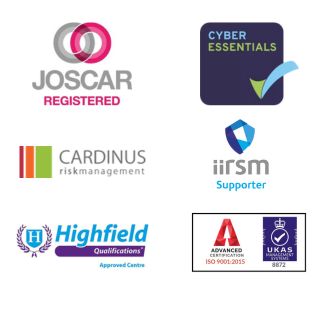Reduce your Risk of Workplace Stress

In today’s hectic world, the workplace can often seem like an emotional roller coaster with long hours, tight deadlines and more and more demands. This can leave you feeling worried, uncertain and overwhelmed by stress, often spilling into home life.
You can’t control everything in your workplace but that doesn’t mean you are powerless. The first thing is to realise you are stuck in a difficult situation and you need to protect yourself from stress and improve your job satisfaction.
With work related stress, depression, and anxiety in 2015/16 at 488,000 cases (HSE), prevention of workplace stress is still as key as ever. Therefore we have pulled together our top tips for beating stress.
Try these practical tips to beat stress
- Talk to co-workers and develop positive relationships with people who are good listeners. Even if they can’t sort things out, they can support you. The face and the heart are wired together in the brain, so talking face to face can calm you and relieve stress. Try not to get your phone or tablet out in your breaks – talk to a person.
- Regular exercise: Aerobic exercise that raises your heartbeat and makes you sweat, is a very effective way to lift both the mind and body. Try walking, dancing, swimming, playing with your children in the garden or join them on a park run and make time with the whole family.
- Eat well: Your food choices can have a huge impact on how you feel during the working day. Eating small, frequent and healthy meals, for example, can help your body maintain an even blood sugar level, keeping your energy and focus up and avoid mood swings.
- Get enough sleep. Lack of sleep can leave you vulnerable to more stress. If you are able to get a good 8 hours sleep it is much easier to keep emotional balance, a key fact in coping with the job and workplace stress.
Avoid bringing paperwork or using a computer or phone to do work at home. Try to do activities that soothe you such as reading, or listening to music.
If you work night shift or rotating shifts you are likely to have the same issues as daytime workers, such as adjusting your sleep pattern to ensure your body and mind are working effectively. This can be done by exposing yourself to bright light when working. Get a good sleep by using black out curtains, eliminate the noise, turn off the phone etc to simulate night time.
- Prioritise and organise: If you feel that workplace stress is beginning to get to you, try these practical steps to regain control:
- Try to make time for family, going out with friends, activities for yourself.
- Leave earlier in the morning so you have time to get to work in time, and are not rushing.
- Take short breaks throughout the day to get a drink, chat to a friend or have lunch away from your desk.
- Prioritise your workload. Tackle high priority first when you feel more capable and this will make the rest of the day less stressful.Break bad habits: Think positively about your work and accept that you have done your best which is all anyone can expect. Ensure you control the things that you can control such as how you react to problems.
If your business needs help with workplace stress, we work with occupational health nurses to help businesses reduce the impact of stress in the workplace. If you want more information about this call the team today on 01666 503686 or contact us here.




